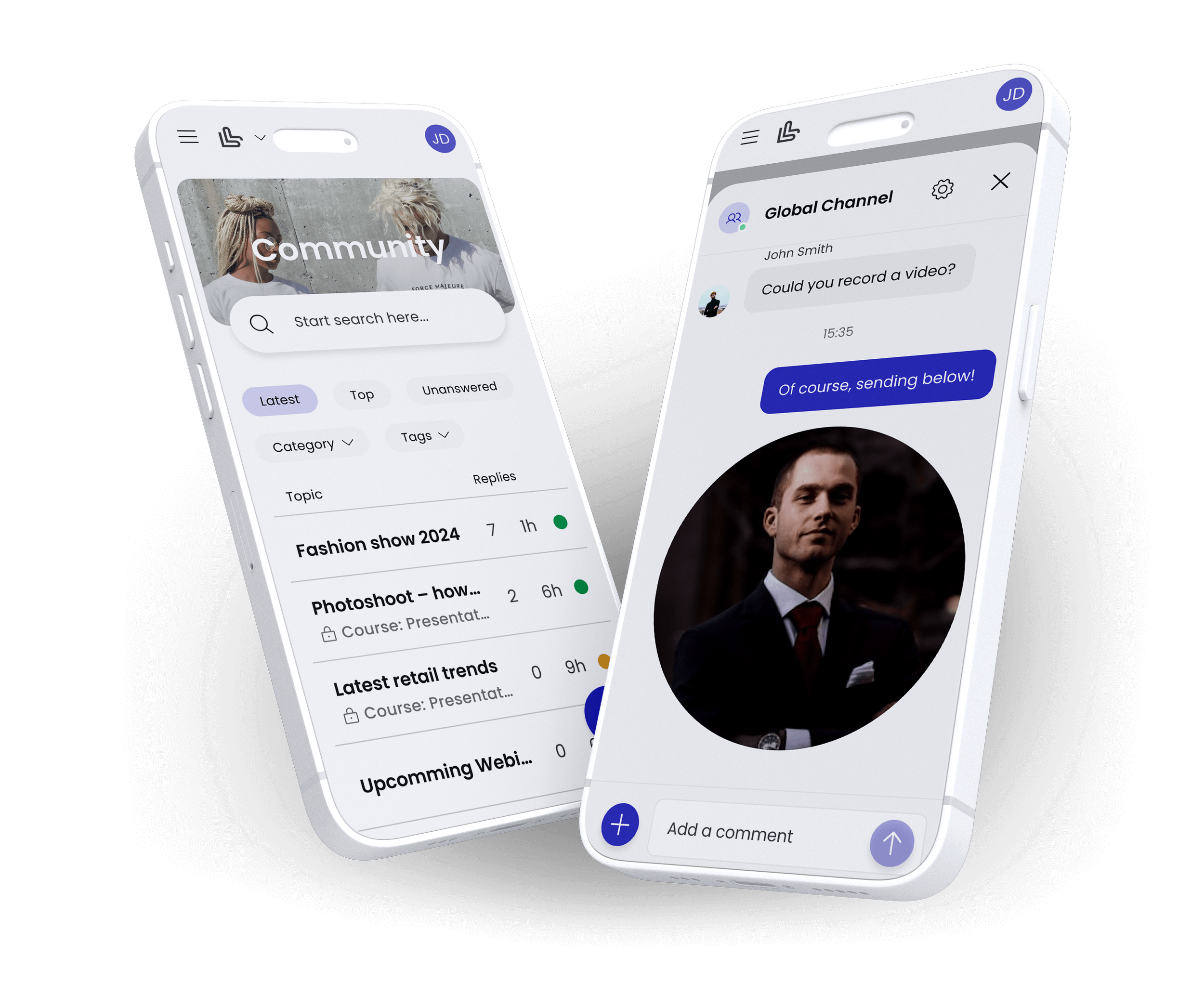Proven Strategies to Increase Engagement in Personal Care Training
Effective Tactics for Boosting Learner Engagement in Personal Care Education
Interactive, hands-on training boosts engagement in personal care education by encouraging practical skill development. Personalised learning paths and timely feedback keep learners motivated and focused.
To increase engagement in personal care training, incorporating interactive, hands-on learning experiences is essential. Practical exercises that allow learners to apply techniques in real-life scenarios enhance understanding and retention.
Tailoring training to individual learning styles and providing personalised feedback further encourages active participation. By integrating a mix of visual, auditory, and kinaesthetic elements, alongside regular assessments, learners remain motivated and focused on their development. These proven strategies not only foster a deeper connection with the material but also ensure that learners feel more confident and prepared in their personal care roles.
Measuring Performance for Enhanced Learning
To effectively measure the performance of your personal care online training programme, it's crucial to assess various key indicators.
By tracking these metrics, you can identify areas for improvement and ensure that your training meets its objectives. Key performance measures include:
Learner Engagement: Monitor participation rates, completion rates, and time spent on training modules.
Knowledge Retention: Use quizzes, assessments, and practical demonstrations to gauge how well learners are retaining the material.
Skill Application: Evaluate learners’ ability to apply the knowledge and skills gained in real-world personal care scenarios.
Learner Feedback: Collect feedback through surveys or interviews to understand the learner experience and satisfaction levels.
Progression and Certification Rates: Track how many learners successfully complete the programme and obtain certifications, if applicable.
Regularly reviewing these metrics will help ensure that your training programme remains effective and aligned with your learners’ needs.
Develop a Feedback Culture for Personal Care Retail Training
Building a strong feedback culture in personal care retail training is essential for continuous improvement and professional growth. Creating an environment where feedback is both welcomed and acted upon helps team members enhance their skills and better serve customers. To develop a thriving feedback culture, consider the following key steps:
Encourage Open Communication: Foster a workplace where staff feel comfortable sharing and receiving constructive feedback without fear of judgement.
Provide Timely and Specific Feedback: Offer feedback soon after an event or task, focusing on specific actions and outcomes to promote clarity and understanding.
Incorporate Peer Feedback: Encourage team members to give and receive feedback from one another, promoting collaboration and shared learning.
Link Feedback to Development Goals: Ensure feedback is aligned with individual growth objectives, helping staff to see its value in their personal and professional development.
Recognise Positive Behaviours: Regularly acknowledge and praise positive performance, reinforcing desired behaviours and motivating staff to excel.
By embedding these practices into your training programme, you can create a culture of continuous improvement, leading to more engaged and skilled personal care retail staff.
Setting Achievable Goals for Maximum Learning
Setting clear and achievable goals is essential to the success of personal care retail training, ensuring that team members can steadily develop their skills and knowledge. Well-defined goals not only provide direction but also help to measure progress and keep learners motivated. To set effective goals for your training programme, consider the following:
Be Specific and Measurable: Outline clear objectives, such as improving product knowledge by a certain percentage or mastering a specific customer service skill.
Ensure Relevance: Align goals with the needs of the business and the personal growth of your team members, making them directly applicable to day-to-day tasks in the retail environment.
Set Realistic Timelines: Break down larger goals into manageable steps with realistic deadlines to avoid overwhelming learners and ensure steady progress.
Make Goals Attainable: Set targets that challenge but are within reach, providing a sense of accomplishment and motivating learners to continue progressing.
Regularly Review and Adjust: Continuously assess goal achievement and make adjustments as necessary to keep training aligned with evolving business needs or individual performance.
Adopting Social Learning for Personal Care
Adopting social learning in personal care retail training can significantly enhance knowledge sharing and skill development by fostering a collaborative environment.
Social learning encourages employees to learn from one another, share experiences, and apply insights to their roles, creating a more engaging and dynamic learning experience. To effectively integrate social learning into your training programme, consider the following:
Promote Peer-to-Peer Learning: Encourage team members to share tips, experiences, and best practices through group discussions, online forums, or team meetings.
Leverage Mentorship: Pair experienced staff with newer employees to foster a culture of continuous learning and skill-sharing within the team.
Create Collaborative Projects: Design training activities that require teamwork, allowing staff to solve problems and learn together in a practical retail setting.
Utilise Social Platforms: Integrate digital platforms where employees can share resources, ask questions, and provide feedback in real time, enhancing community learning.
Encourage Informal Learning: Recognise and support informal learning opportunities, such as on-the-job observations or casual conversations, that contribute to skill-building.
Benefits of Branding the Learning Experience and Delivering Premium Design for Personal Care Training
Branding the learning experience and delivering a premium design for personal care retail training can significantly elevate both engagement and the overall quality of training.
A well-designed, branded learning environment aligns with your company’s identity, creating a cohesive and professional experience that resonates with employees. The key benefits of this approach include:
Consistent Brand Identity: Integrating your brand’s colours, logos, and values into the training design reinforces the company’s identity and promotes brand loyalty among staff.
Enhanced Engagement: Premium design elements, such as intuitive navigation and visually appealing content, make the learning experience more enjoyable, increasing employee motivation and participation.
Professionalism and Credibility: A polished, well-branded training platform reflects the high standards of your business, instilling confidence in your team and setting a standard of excellence.
Personalised Learning Experience: Custom-branded elements create a more tailored, personal experience, helping learners feel more connected to the material and the organisation’s mission.
Increased Retention: A well-designed, attractive learning interface helps learners engage more effectively with the content, improving retention and practical application of key skills.
By branding the learning experience and investing in premium design, you can deliver a training programme that not only educates but also inspires your team, ultimately enhancing performance in the personal care retail environment.
Promote Forums and Chats
Promoting the use of forums and chats within personal care retail training can significantly enhance communication and knowledge sharing among team members.
These platforms provide a space for employees to discuss challenges, share insights, and seek advice in real-time, fostering a more connected and collaborative learning environment. To effectively implement forums and chats in your training programme, consider the following strategies:
Create Dedicated Discussion Spaces: Set up forums or chat groups focused on specific topics, such as product knowledge, customer service techniques, or handling customer complaints.
Encourage Active Participation: Motivate staff to regularly contribute to discussions, share experiences, and ask questions to promote continuous learning and engagement.
Facilitate Knowledge Sharing: Use these platforms to share updates on new products, industry trends, or company policies, ensuring all staff have access to the latest information.
Recognise Valuable Contributions: Acknowledge and reward employees who consistently provide helpful insights or solutions, encouraging others to engage more actively.
Ensure Moderation: Assign a moderator to oversee discussions, ensure that conversations stay relevant, and provide expert guidance when needed.
Benefits of Video Learning Aids for Enhanced Learning
Video learning aids can significantly enhance the effectiveness of personal care retail training by providing engaging, visual content that appeals to various learning styles.
By incorporating videos into your training programme, you can improve knowledge retention and ensure that key concepts are more easily understood and applied. The key benefits of video learning aids include:
Visual Demonstrations: Showcasing product usage, customer interactions, or service techniques visually helps learners grasp complex concepts more quickly and effectively.
Consistency in Training: Videos ensure that all employees receive the same information, providing a standardised training experience across different locations or teams.
Flexibility and Accessibility: Learners can access video materials at their own pace and revisit them as needed, promoting flexible learning that fits around their schedules.
Increased Engagement: Videos are often more engaging than text-based materials, holding learners' attention longer and making the learning experience more enjoyable.
Practical Skill Application: By watching step-by-step demonstrations, employees can better understand how to apply their knowledge to real-life personal care retail scenarios.
Blended Learning LMS for Personal Care Online Training
Implementing a blended learning approach through a Learning Management System (LMS) in personal care retail training can offer the best of both digital and in-person training methods.
Blended learning combines online resources with face-to-face interactions, providing a more flexible and comprehensive training experience. The key benefits of adopting a blended learning LMS include:
Customised Learning Paths: Tailor individual training plans to meet the specific needs and skill levels of each employee, ensuring more targeted development.
Flexible Access: Learners can access training modules online at their own convenience, allowing them to fit learning around their work schedules.
Interactive Online Resources: Incorporate videos, quizzes, and interactive content that employees can engage with, enhancing their understanding of key personal care retail concepts.
Face-to-Face Reinforcement: Supplement online learning with in-person workshops or hands-on practice, reinforcing digital lessons with real-world application.
Trackable Progress: Use the LMS to monitor individual performance, track completed modules, and identify areas where further training might be needed.
Activity-Based Learning for Personal Care Retail Training
Activity-based learning in personal care retail training can significantly enhance skill acquisition by encouraging hands-on practice and real-world application.
This approach allows learners to actively engage with the content, improving both their understanding and retention of key concepts. The key benefits of activity-based learning include:
Practical Skill Development: Learners engage in role-playing scenarios, product demonstrations, and customer interaction simulations, helping them apply their knowledge in a real-world retail environment.
Enhanced Problem-Solving: Activities that involve handling common retail challenges, such as addressing customer complaints or upselling products, improve employees' decision-making and problem-solving abilities.
Increased Engagement: Active participation in learning tasks keeps employees motivated and interested, making the training more dynamic and enjoyable.
Collaboration and Teamwork: Group activities encourage teamwork and knowledge sharing, fostering a collaborative culture within the retail team.
Immediate Feedback: Trainers can provide instant feedback during activities, helping learners to correct mistakes and improve their performance on the spot.
Learning Lab: LMS for the Personal Care
Customised Learning Paths: Tailor training programmes to meet the specific needs and learning styles of individual staff, ensuring targeted skill development.
Interactive Learning: Incorporates videos, quizzes, and practical simulations that make the learning experience more engaging and relevant to real-world personal care scenarios.
Flexible Access: Staff can access training materials anytime, anywhere, allowing them to learn at their own pace and balance training with their work schedule.
Progress Tracking: Easily monitor employee progress, completion rates, and assessment results, providing insights into overall performance and areas that need improvement.
Consistent Training Delivery: Ensures that all team members, regardless of location, receive the same high-quality training experience, maintaining uniform standards across the business.
Scalable Learning: As your team grows, The Learning Lab LMS can easily accommodate more learners, providing a seamless training solution for larger teams or multiple locations.
Regular Updates and Content Integration: Easily update training content to include the latest industry trends, new products, or regulatory changes, keeping your team up to date.
Blended Learning Capabilities: Combine online modules with face-to-face training sessions to enhance hands-on skill development while maintaining the flexibility of digital learning.
Conclusion
In conclusion, adopting a variety of modern learning strategies, such as blended learning, video learning aids, social learning, and activity-based learning, can greatly enhance the effectiveness of personal care retail training.
These approaches not only engage learners but also help them apply their knowledge in practical scenarios, leading to better customer service and more confident, skilled staff.
By setting clear goals, fostering a feedback culture, and promoting collaborative learning environments through tools like forums and LMS platforms, you can create a comprehensive training programme that drives both individual and business growth. Investing in these methods will ensure your team is well-equipped to meet the evolving demands of the personal care retail sector.





